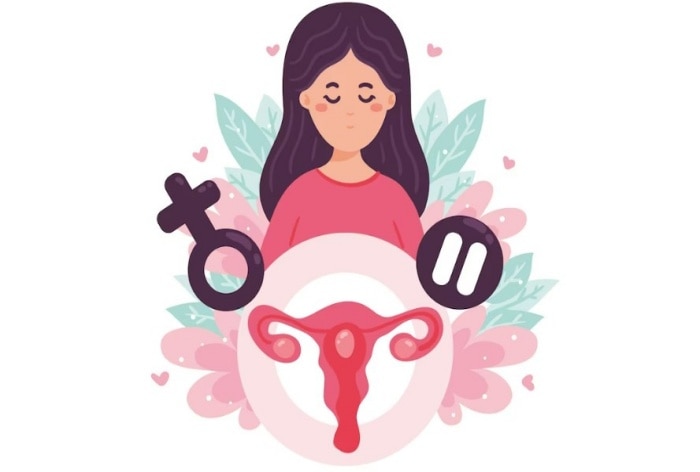Menstruation is a topic that requires more candid conversation and an aura of normalcy. But do these period parties solve the purpose or just trigger the awkward anxiety more?

It is “that time of the month” again. Cramps, mood swings, pain, food craving. Bleeding for seven days every month of the year is no cakewalk. While it is not simple for everyone, it is a natural way of the body. A natural process that every girl, and every woman undergoes. Its biology. However, since yesterday year “periods” has been wrapped with hush-hush words. It is considered to be something not to talk about loudly, something that has been contemptuously looked upon and to date, often women have a sense of awkwardness talking about it.
However, with changing times and tides, the menstrual cycle is being normalised but a few nooks and crannies of society still fail to comprehend the normalcy of this biological process. Recently, a family in Uttarakhand made it to the headlines for all prominent national dailies because they celebrated their daughter’s first period.
‘Happy Periods’ to You
Jitendra Bhatt, a music teacher hailing from Udham Singh Nagar, Uttarakhand proudly threw a party to celebrate his daughter, Ragini’s, first menstrual cycle. Why should we hide such things? It is a natural process that leads to fertility, and it should be celebrated, not brushed under the carpet,” Bhatt was quoted as saying.
There was a red velvet vegan cake, a list of happy neighbours and guests at the party and a will to break the taboo surrounding menstruation and women.
This initiative by the family has received appreciation. According to Mr Bhatt and his family, the idea behind the party was to normalise the process and make way for conversations about it.
While the decision surely comes from a place of goodwill and to make a change, there is another side of the coin as well.
But before, we turn it, let us take a look at the many rituals that different Indian states celebrate to mark the first menstrual cycle of their daughters.
How Different Indian States Celebrate First Menstrual Cycle.
Karnataka: In this southern state, the onset of the first menstrual cycle is celebrated with fun and frolic and is called Ritu Shuddhi or Ritu Kala Sanskar’. As the onset of periods is considered as women stepping into’ womanhood,’ girls are made to wear a half saree.
Assam: Tulonia Biya is the celebration of the first period for a teenage girl in Assam. During this time, the girls is ‘forbidden’ to do anything and is isolated in a room for seven days. After completion of the cycle, the girl is groomed and married to a banana plant.
Tamil Nadu: In Tamil Nadu, a girl’s first period is celebrated as a festival called ‘Manjal Niratu Visa’. All the guests are invited to the ceremony. In this ritual, the girl’s uncle builds a hut out of mango, coconut and neem leaves. The girl is bathed with turmeric water and she stays in the hut. Several delicious dishes are prepared for her. After bathing, the girl is dressed in a silk saree and adorned with jewellery. The ceremony ends with ‘Punya Dhanan’. The hut built by the uncle is now removed and a priest purifies the house.
Odisha: In this eastern state, it is a three-day long festival known as Raja Prabha. For the ceremony, the girl is bathed on the fourth day of her period. This custom is also associated with another custom known as ‘Mithun Sankranti’ which is related to the first rain of the monsoon. The fourth day is also related to the productivity of the soil due to rain. During this time the girl is bestowed with presents and enjoys her own sweet time and relishes sweets and new clothes.
Andhra Pradesh: Pedamnishi Pandaga is a grand celebration of a girls’ first period. During this, here also girl is isolated from the rest but is given saree, jewellery and gifts.
These are few places that celebrate the first menstrual cycle but should it really be?
Should These Celebrations Be Practised at all?
Some of the rituals stated above are orthodox in their own ways. According to the several taboos that surround, menstruation, one is being separated and isolated a room. Women were not allowed to eat with family members and were locked up in rooms for seven days. And some of these rituals follow a similar pattern where girls have to separated from family.
While the new age celebration of the first period comes from a good place, there is another school of thought that highlights how these parties tend to become more like a deterrent to normalising the concept.
Earlier, these rituals also were a symbol that how daughters are eligible to become women and eventually be married. As per the ancient traditions, women were married at the early age of 15 or 16 years of age and as menarche begins, it signified that the girls can embrace motherhood, in short bear a child.
Why challenging these is celebration is important? Many of these rituals have their roots grounded in orthodox practise that do not the serve the purpose of normalising it.
Apart from these, have we ever asked the girls if they are comfortable with it?
Speaking to Women’s Health Magazine, Mayu Kataoka said, “When I first got my period, I told my mom what happened, and next thing you know, she cooked up this dish for my entire family that same night. It was a totally normal thing for my parents, but being a teenager, it was definitely awkward and made me want to disappear from the dinner table.”
This is just one of the, any instances. Yes, it is important to have candid conversations around menarche and these trending period parties surely aim to reduce the taboos, but one should also understand that glorifying it is not the answer.

Don’t Miss Out on the Latest Updates.
Subscribe to Our Newsletter Today!

